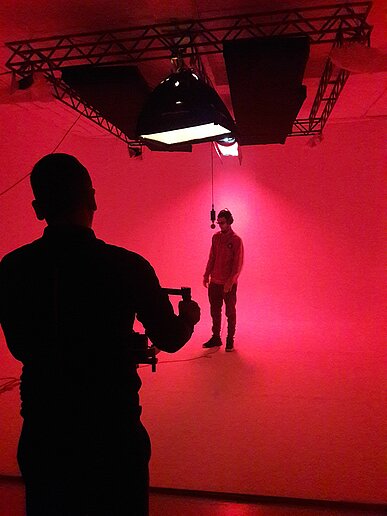The Economy of Hip-Hop Music Production in Bishkek, Kyrgyzstan (1990s–2021)
The present project is based on a doctoral research and examines the hip-hop music community in Kyrgyzstan’s capital Bishkek, with a focus on musical production and its context. Besides music makers, such as rappers and beatmakers, relevant actors also include other people involved in the production or distribution of music, such as sound engineers, managers and ‘hip-hop entrepreneurs’. In the research, I posit hip-hop music in Bishkek as an ‘art world’, where making music is an inherently collective activity, and a form of ‘creative labour’.
The project addresses the following questions: How do individuals get and remain engaged in the field of hip-hop music? How do they organise their creative labour in that field? How do they participate in structuring the Hip-Hop music economy in Bishkek and what consequences does that have for the creative labour of individuals?
The study builds up on a body of work examining the working conditions of artistic and musical creation and framing artistic activity as labour. Hip-hop music in Bishkek is a particularly interesting case as a relatively accessible artistic form in what can be deemed a musical periphery, far off dominant cultural flows and musical industries. The conditions of hip-hop music production in Kyrgyzstan thus resonate particularly well with a growing scholarship on ‘music economies’ in Africa and more generally so called ‘do-it-yourself’-like self-organisation of independent, peripherical musical collectivities.
In considering the community of Hip-Hop music in Bishkek as a single case study, my research takes a a historiographic approach, observing the evolution of Hip-Hop music production and distribution in Bishkek over the last 30 years. This allows me to draw comparisons over time, to describe the effects of technological change and to include more long-term trajectories of individuals and collectives, as well as socio-political change in Kyrgyzstan into the analysis.
The research project draws from ethnographic data collected during a total of 13 months of research stay between May 2019 and November 2021. This includes around 100 half-structured interviews with active and former Hip-Hop music makers, sound-engineers, and creative entrepreneurs, as well as informal, unrecorded conversations and notes from participant observation in places of music production (notably recording studios and filming sessions) and performance. This data is complemented by numerous available third-party interviews and news reports from local media and online-media, as well as available material from internet-forum discussions, the social media activity of relevant actors and traces of inactive specialised websites in the internet archive.
- Photo 1: "Break, rap is power, rock is a grave!" - Inscription in the 12th microdistrict in Bishkek. © Florian Coppenrath
- Photo 2: The rapper Belyi recording a live video in Bishkek in December 2019.

